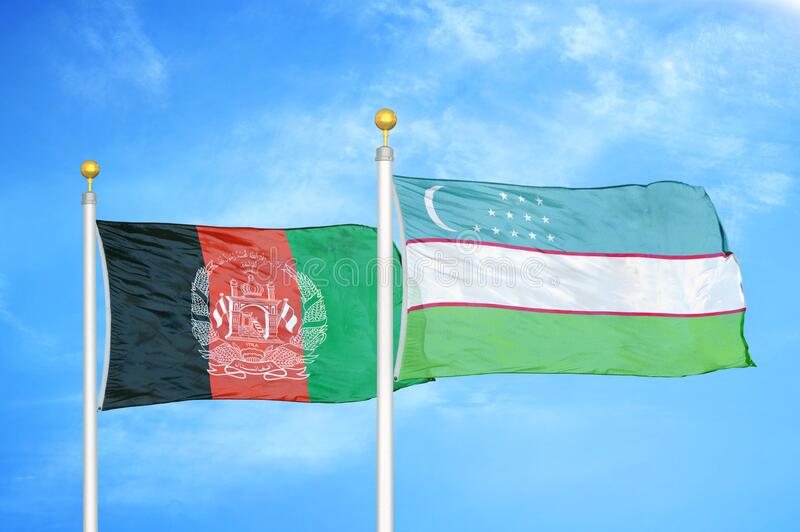Perizat RISBEK KIZI
In recent years, Uzbekistan and Afghanistan relations have strengthened significantly. Uzbekistan’s commitment to establishing peace in Afghanistan and involving it in regional trade and economic relations made it possible to impart a friendly character to interstate relations. For example, on June 19, a delegation of Uzbekistan headed by the Deputy Secretary of the Security Council under the President of Uzbekistan Abdulaziz Kamilov visited Kabul.
During the visit, separate talks were held with the Deputy Prime Ministers of Afghanistan – Mullah Abdul Ghani Barodar and Abdusalom Hanafi. The parties discussed the prospects for further development and strengthening of cooperation in the trade and economic sphere, as well as the implementation on the territory of Afghanistan of various infrastructure projects initiated by Uzbekistan in the energy and transport sectors.
Prospects in the trade and economic sphere
Today, Uzbekistan and Afghanistan are important trading partners for each other. According to the State Statistics Committee of Uzbekistan, Afghanistan is in the top ten countries that have a high trade turnover with Uzbekistan. Thus, in the first four months of 2022, the volume of trade between states amounted to $239 million. Uzbekistan mainly supplies wheat flour (28.1%) and electricity (17.2%) to the Afghan market and provides services in the field of freight rail transportation (25.3%). Imports from Afghanistan are represented by food products (mainly sucrose and mineral water), live plants, equipment and mechanical devices, as well as transport services.
In its foreign policy, Uzbekistan gives priority to the development of cooperation with Afghanistan and the involvement of this country in regional trade and economic ties, which creates conditions for the formation of a socio-economic base for the peace process in Kabul. A peaceful and stable Afghanistan will make it possible to fully realize the potential of trans-regional cooperation, ensure interconnectedness in the vast expanse of Eurasia and turn Afghanistan into a bridge between South and Central Asia. Against this background, an important event was the recent delivery to Tashkent of a cargo of frozen meat from the Pakistani city of Karachi through Afghan territory. Additionally, in March of this year, trucks with 140 tons of cargo, mainly Indian sugar, were delivered to the capital of Uzbekistan, Tashkent.
Implementation of infrastructure projects in Afghanistan
In addition to building up trade cooperation, the implementation of large interstate infrastructure projects was actively carried out. In particular, this is the Mazar-i-Sharif-Kabul-Peshawar railway project, which is of great regional importance. Another important project is the construction of the Surkhan-Puli-Khumri power transmission line, which will significantly increase the availability of electricity for the population and economy of Afghanistan.
Afghanistan is a country where there is an acute shortage of electricity, and its own production capacities do not fully cover the demand for it. In order to solve problems in the energy sector, the National Energy Supply Program was developed, which includes the Renewable Energy Roadmap for Afghanistan 2032. The Plan provides for increasing the provision of the population and economy of Afghanistan with electricity from 30 to 83%, the rural population from 28 to 65% and the urban population up to 100%. The implementation of the project for the construction of the Surkhan-Puli-Khumri power transmission line with a length of 260 km from the Surkhandarya region to the city of Puli-Khumri, meeting the long-term plans for the development of Afghanistan’s energy supply, will be able to create conditions for the development of industry in the country. In addition, this transmission line will allow connecting the energy system of Afghanistan to the unified energy system of Uzbekistan and Central Asia and will increase the supply of electricity from Uzbekistan to Afghanistan by 70% to 6 billion kW/h annually.
The agreement reached on further progress in the construction of the Mazar-i-Sharif-Kabul-Peshawar railway is of particular importance. For the construction of the Trans-Afghan railway, it is planned to build 912 artificial structures, 18 km of bridges and 7 tunnels with a total length of more than 70 km. On May 18 this year, the head of the Afghan Railway Department, Bakht-ur-Rahman Sharafat, said that within a month it is planned to start fieldwork on the construction of the railway together with Uzbekistan.
The implementation of this project will create the nearest, cheap and safe corridor connecting the two regions, and will give the countries of Central Asia access to the Pakistani ports of Karachi. Moreover, the trans-Afghan corridor can become a link between the Belt and Road Projects and the China-Pakistan Economic Corridor and will have a positive impact on the growth of Afghanistan’s trade relations.
As a result, it should be noted that Uzbekistan and Afghanistan are mutually interested in further expanding trade, economic and investment cooperation and are making efforts to find new areas of economic cooperation.
Uzbekistan has repeatedly declared that the Afghan conflict has no military solution. The only effective means of achieving peace is the speedy involvement of the Afghan economy in world economic relations and assistance from the world community to the socio-economic development of Afghanistan. In this perspective, Uzbekistan, through an active increase in trade with its southern neighbour and the implementation of large cross-country infrastructure projects, contributed to the solution of this problem. Tashkent invariably adheres to the fact that Afghanistan is a source not only of challenges and threats but also of new opportunities that can be the basis for constructive regional projects.

